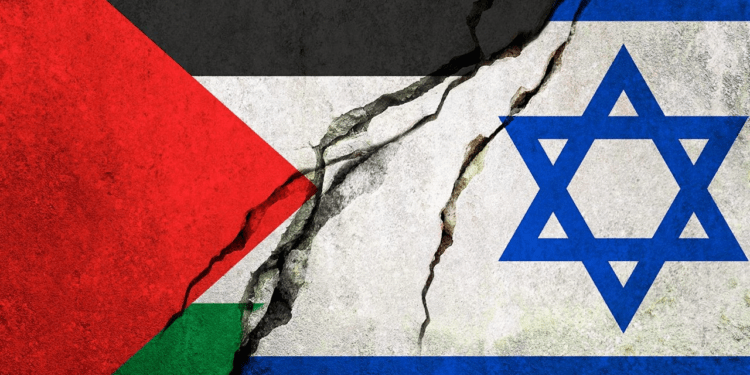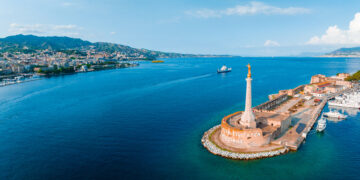Contents
Questo articolo è disponibile anche in:
After our first article about the birth of Zionism, our short journey through the troubled history of contemporary Palestine continues. This time we will talk about the main conflicts that affected Israel and the Arab countries from 1948 to the ’80s.
The current escalation in Gaza, consisting in the start of a real ground invasion by the IDF, is part of a long streak of armed clashes that history has witnessed. The script appears always the same: on the one hand Israel with its desire to establish undisputed dominion over the Palestinian territories and on the other the Arab world intent on seeking an unconditional victory to reclaim the Holy Land.
Israel’s primordial struggle: the 1948 War
Israel’s independence was symbolically inaugurated by a war. On May 14th 1948, the British officially abandoned Palestine under the UN protection. The region would be divided between a Palestinian and a Jewish territory, with Jerusalem under international administration. This partition plan had been approved by the United Nations Special Commission on Palestine (UNSCOP) in 1947, which was, however, immediately boycotted by the Palestinians.
However, this plan never saw the light: on May 15th 1948, the armies of Egypt, Jordan, Syria, Lebanon and Iraq attacked Israel with the aim of eliminating the Zionist entity. Initially, Israel was on the defensive, unable to strengthen itself due to the arms embargo imposed by the United Nations. The numerical inferiority and heterogeneity of post-war Israeli society played to the great advantage of the Arab armies.

The Palestinian fedayn managed to besiege West Jerusalem, while the Liberation Army penetrated many Jewish settlements in the Galilee. The turning point came with the ceasefire imposed by the UN on 11th June 1948. This allowed the influential Zionist elite to begin to exert strong pressure on the governments of its future Western allies.
Despite the embargo, Israeli troops were supplied with rifles, cannons, tanks and machine guns and the number was increased to 65,000. The balance now tipped clearly in favor of the Zionists who counterattacked on all fronts successfully. Armistice negotiations began in January 1949. Israel expanded its territory by 21% to the detriment of the Palestinian borders.
Egypt occupied the Gaza Strip, while Transjordan received the West Bank. The only losers were the Palestinians: expelled from the territories now conquered by the Jews, they also saw the cessation of their sovereignty with the occupation of Gaza and the West Bank. This first military confrontation had strong repercussions on the young Arab state entities.

Syria suffered three military coups in 1949 only. The Jordanian king Abdullah was assassinated in 1951, probably due to an alleged collusion with the Israeli leaders regarding an unscrupulous partition of Palestine between the two states. Lebanese president Chamoun managed to overcome an attempted coup in 1952, while Egypt experienced the end of the monarchy with the rise to power of the Free Officers movement.
The Palestinians referred to the 1948 war with the term “al-naqba” (catastrophe). This historical development has continued to evoke a strong sense of revanchism in Arab countries for decades, fueling the need to wash away the shame of the catastrophe. Israel went from being an alien body to the nemesis par excellence of the Arab world.
The end of the European empires: Suez Crisis
It was only a matter of time before war flared up in the region again. Among the various upheavals following the 1948 conflict, Egypt underwent the most important change. King Farouk had been deposed in 1952 and the Land of the Pyramids was now in the hands of Gamal Abdel Nasser. Charismatic, energetic and determined, his policy of non-alignment and his calls for an Arab socialism had made him a hero of the people and the main leader of the Middle East.
Part of the Israeli establishment welcomed this change of leadership, hoping to obtain some basis for the normalization of diplomatic relations. The former Israeli Prime Minister, David Ben Gurion, did not share the same opinion, adhering to the axiom according to which the Arabs understood “only the language of force“.
Gurion still held enormous influence in power circles and did not refrain from exercising it. Tel Aviv, in fact, moved quickly to undermine the credibility of the new Egyptian pan-Arabist leader. In July 1954, a group of Israeli agents acted in collaboration with Egyptian Jews to attack several British and American properties. The aim was to place the blame on the Egyptian people and cool down relations between Cairo and the West.
This action went down in history as the “Lavon Affair” and became as famous as it was a failure. This had the only result of starting a spiral that brought Egypt and Israel to the brink of a new war. France, Great Britain and the United States had now aligned themselves with Tel Aviv for various reasons. Paris aimed to eliminate Nasser, guilty of supporting the Algerians’ effort in their war of independence against the French troops.
London was concerned about its dominance of oil production in the region, while Washington frowned on the recent Czechoslovakian military supplies obtained by Nasser in the aftermath of the Lavon Affair. The situation then became a zero-sum game. The United States proceeded to cancel fundings for the Aswan Dam, the fulcrum of Nasser’s modernization policy.
This started a chain reaction that saw the nationalization of the Suez Canal on 26th July 1956 by the government to obtain the necessary funds for the continuation of the dam project. This resulted in the exclusion of the French and English ships, now unable to quickly pass from the Mediterranean to the Indian Ocean.

Paris and London saw themselves threatened, as the loss of management of the canal equated to the inability to be connected to many of their colonial possessions. In September, Nasser also closed the Straits of Tiran, thus cutting Israel off from the Red Sea. Every actor in the field now had their own casus belli.
In October, France, Britain and Israel agreed to launch a coordinated invasion of Egypt. On October 29th 1956, the ball began as scheduled. The Jewish army invaded Sinai, reaching the Suez Canal the next day. Paris and London sent an ultimatum to both sides, obtaining the expected categorical refusal from the Egyptian leader.
Thus began the Anglo-French bombings against airports and infrastructures, while the paratroopers prepared for action. The conflict, however, was nipped in the bud by strong American pressure. The UN condemned the actions of the three countries, giving a strong blow to the prestige of London and Paris. Israel actually emerged stronger, having demonstrated its military strength.
The US had every interest in defusing a conflict that would upset the upcoming American elections and divert world attention from the Hungarian uprising. Furthermore, they could not tolerate a fully independent power politics from France and Great Britain. The Suez Crisis was the tombstone of the last two European empires, which understood their inability to act militarily outside of American approval.

The decisive American intervention was met with the approval of the Soviet Union itself, which equally frowned upon a deliberate and independent action by third European actors. The two superpowers had no hesitation in teaming up to defend their unchallenged dominion over the world. The dualistic competition of the Cold War, indeed, benefited both contenders. The total subordination of Europe to foreign powers was thus strengthened.
From a strong-willed center of the world, the European continent became ultimately the border and dominated province of two weltanschauung being irreconcilable with the true European ethos. The French and English decline created a great power vacuum in the Middle East following the Suez events. This was quickly filled by the United States and the USSR who were this way able to coerce the neighboring countries into their respective unipolar world logic which, although divergent on the surface, was functional to one another.














